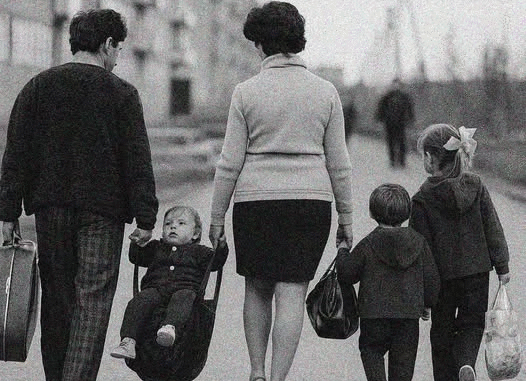
We carry our childhoods with us, a collection of scars and souvenirs. Many of us bear wounds from our parents. They yelled. They were distracted, overwhelmed, or simply human. They swatted us on the back of the head, fought in front of us, and didn’t buy the toy we desperately wanted. Perhaps they didn’t say “I love you” as often as we needed—and a therapist might confirm our deepest fear: that we weren’t loved enough.
But how could a therapist ever truly know? How could they possibly measure the silent, unseen moments that never made it into our conscious memory? The story of our upbringing isn’t just written in the loud arguments or the perceived slights; it’s etched in the quiet sacrifices we never witnessed.
I learned this lesson on a visit home from college, with my eight-month-old daughter in tow. She was a restless sleeper, her cries slicing through the night. I had already grown accustomed to the exhausting rhythm of new motherhood: rock her, soothe her, repeat.
On that very first night, my father quietly approached me. He had a “life hack,” as we’d call it now. He brought a rug and a pillow into the room and laid them neatly on the floor beside the crib.
“We’ll take turns sleeping right here,” he said, his voice matter-of-fact. “It’s easier. You don’t have to jump out of bed all night. Or maybe I’ll just do it myself. It’s good for my back anyway.”
Then, as if it were the most casual afterthought, he added, “I actually slept this way for a year when you were little. Your mom was in med school full-time, I was working at the psychiatric hospital and pulling shifts on the ambulance. And every night I slept on the floor by your crib. Easier to get up fast when you cried. Safer that way.”
I stood there, stunned. I never knew. He never said a word. Nobody had ever told me. There was no grand declaration, no speech about his sacrifice or his sleepless nights. He didn’t swear his love or ask for recognition.
He just… slept on the floor. For a year. And without a second thought, he was ready to do it all over again for his granddaughter. In his mind, it was simply what you did. That was love. It required no fanfare.
This revelation reframed my entire understanding of love. For a generation of parents, love wasn’t always spoken aloud; it wasn’t the cultural norm. Instead, it was demonstrated in a thousand tiny, practical details. It was saving the best piece of food for us on their plate. It was spending their last dollars on a pair of nice shoes so we wouldn’t be embarrassed at school. It was running out in the middle of the night for medicine, sitting vigil through a fever, and yes, sleeping on a hard floor to ensure we were safe.
Therapy is a powerful tool for healing, and it can help us navigate the real pain of our past. But before we conclude definitively that we “weren’t loved enough,” perhaps we need to embark on a different kind of excavation. We must try to remember the little things—the silent, selfless acts that were so routine, so ingrained in the fabric of our care, that they became invisible.
Because love is often hidden in those very details. It’s the kind we don’t always notice, the kind we were never meant to see, and the kind we must now struggle to remember. It’s the love that asks for nothing in return, not even a memory.